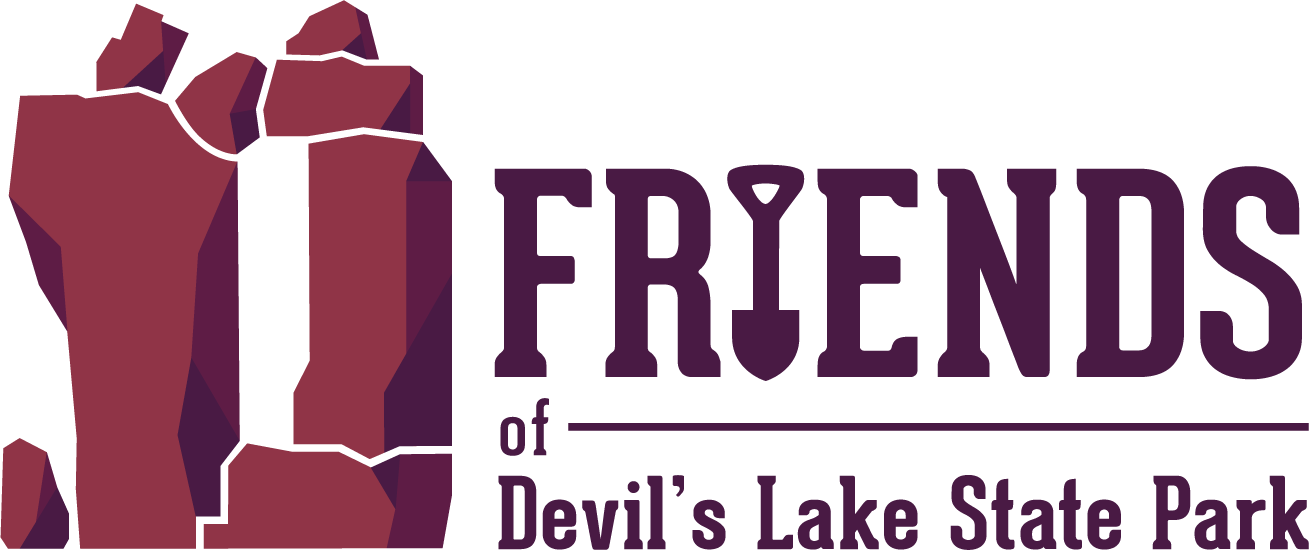
Interpretive Center FAQs
-
A multi-use, year-round Interpretive Center at Devil’s Lake State Park is sorely needed to enrich visitors’ experiences at Wisconsin’s largest and most-visited state park.
It will meet the needs of visitors of all ages and abilities and serve as a hub within the park to teach about its special place in culture and nature.
Importantly, it will introduce visitors to the Baraboo Hills region, Wisconsin’s other state parks and our state’s numerous other nationally significant recreational, natural, and cultural treasures. It will be a gateway, helping visitors venture beyond the park. It will help meet the needs of park visitors, while providing an opportunity to lessen impact on Devil’s Lake by inspiring visitors to explore other areas.
The park’s current Nature Center was originally developed in 1928 as a warm-season golf course clubhouse and renovated in the 1960s as a temporary facility to support the park’s naturalist program. The park’s current master plan, adopted in 1982, established the need for a year-round interpretive center.
The current Nature Center is far too small to accommodate the more than 2.5 million annual visitors to our 10,000-acre park. Incidentally, that number of visitors is on par with numbers for Grand Teton and Glacier national parks, which are among the top 10 most-visited national parks.
-
The center will offer dynamic exhibits to enhance park visitors’ experiences, providing an exciting new destination.
It will be versatile, accommodating an array of purposes and functions, with an emphasis on education. Also, the center will capitalize on local, regional, state, national and international partnerships.
The center will feature:
Interactive multimedia exhibits and educational spaces
Proximity to natural resources and historical resources
Outdoor learning areas
Scenic views of the lake, bluffs & trails accessible to all
Design harmonizing with the landscape and existing buildings
Connections between camping and day-use areas
Year-round restrooms
Access for pedestrians and cyclists
Quality sustainable, energy-efficient building materials and systems
Administration space including offices, storage, and program preparation space
Community gathering space
-
While several locations have been studied, a specific area across the railroad tracks from Rock Elm has been identified as the best fit. However, until the DNR finalizes the master plan, the location is not yet finalized, and other sites are still under consideration.
The North Shore site was chosen after a comprehensive Site Selection Evaluation conducted by GWWO Architects. The location stands out due to its accessibility to recreational opportunities, proximity to the lake and impressive views, low development cost (existing infrastructure, roads, and parking), sustainable design opportunities, minimal environmental impact, and superior potential for educational opportunities.
The extensive evaluation by GWWO, Inc./Architects. It determined that this location has several strong attributes, including:
• Connection to recreation resources and opportunities
• Ease of visitor access
• Financial impact
• Opportunities for sustainability
• Less physical impact to natural resources
The site was also ranked highly for its buildability, universal access and potential for educational opportunities.
-
The center will employ sustainable practices and building materials to minimize environmental impact. The facility will be carefully designed to lessen its development footprint, keeping construction costs low while reducing site disturbance and the impact on natural resources to the greatest extent possible.
-
The approximate cost to construct the center is $18 million. A capital campaign will reach out locally, regionally and nationally to tap numerous sources of support.
-
Yes, our aim is to ensure the interpretive center is a year-round facility for visitors. While winter attendance is traditionally lower, we hope the center's amenities will attract visitors during off-peak months. We have designed the space to accommodate a variety of events and meetings, which will also help fund operation and maintenance. The center is intended to be inclusive and educational, enhancing the park's appeal during the colder months.
-
While the interpretive center may not significantly increase overall attendance, it is expected to distribute visitors more evenly throughout the year. The center's main purpose is to provide basic amenities the park lacks (bathrooms in the winter, for example) enhance the visitor experience by providing in-depth information about the park's geology, ecology, and history, and provide an educational and community resource.
-
The historically significant buildings will remain in use. The Chateau will continue to serve as the main concessions area, while the interpretive center focuses primarily on education. The existing headquarters and nature center will also remain functional, with plans for their use currently under development.
-
The DNR is working on a master plan that includes addressing parking concerns. Current proposals ensure that no parking spaces are eliminated, and we recognize the need to manage parking efficiently during peak times.
The planning process will address parking concerns and optimize public access to manage parking efficiently, considering both the existing and new center's parking needs.
-
The campaign is a joint initiative of the Friends of Devil’s Lake State Park, the Devil’s Lake Concessions Corporation, and the Wisconsin Department of Natural Resources.
The campaign is being conducted through a volunteer team.
The Campaign Steering Committee, working under the Friends of Devil’s Lake State Park Board of Directors, is leading the campaign. Volunteers from Baraboo and surrounding communities will play a crucial role in the campaign's success.
-
Yes, The Friends of Devil’s Lake State Park is a tax-exempt organization under Section 501 (c) (3) of the Internal Revenue Code, EIN: 39-1867786. Gifts are tax-deductible to the extent permitted by law.
Make your gift today at friendsofdevilslake.org/donate/center
-
The fundraising campaign is expected to span from July 2021 until the Center is constructed.
To make a gift please visit friendsofdevilslake.org/donate/center
-
Donations can be made by check payable to the Friends of Devil's Lake State Park or online at friendsofdevilslake.org/donate/center
Pledges are also encouraged, allowing donors to extend their gift payments over a three-year period.
-
The state has not allocated budgeted dollars for the project.
If you have further questions please contact the Friends of Devil’s Lake at info@friendsofdevilslake.org.
